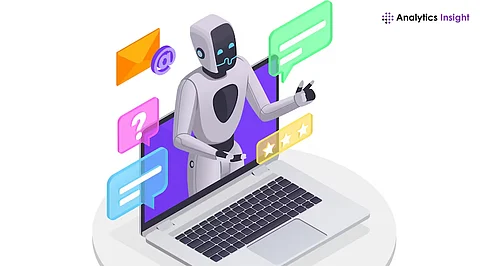

Lawyers use ChatGPT for its speed in drafting and research, despite its errors.
AI-generated fake case citations have led to sanctions and legal mishaps.
The allure of efficiency keeps attorneys reliant on ChatGPT despite risks.
ChatGPT, that AI thing that sounds like a person, it's made its way into the legal world, believe it or not. Lawyers are using it for quick help with research, to get a first draft of documents going, and to spitball ideas.
Consider this: attorneys are busy individuals. For them, ChatGPT's speed and ease of use are crucial. They can save hours of actual work by using it to quickly draft a contract, email, or legal argument in a matter of minutes. Plus, it can go through tons of info and give you answers on legal stuff, kind of like a starting point when you’re doing research. If you're a lawyer working by yourself or in a small group, without a ton of people, this kind of speed boost seems amazing.
There have been some seriously embarrassing situations in the legal world because of ChatGPT. One time, a lawyer in New York gave the court a document that quoted made-up court decisions that the AI invented. The lawyer got in trouble and everyone found out about it. That shows one of the biggest problems: ChatGPT will just make stuff up if it doesn't know the answer.
This has happened in other places too, and some lawyers have had to pay fines or been told off for using info from the AI without checking that it was real. All these errors make people trust lawyers less and put the lawyers themselves at risk.
Also Read: How New York Times Mini was Created?
With all those problems, you'd think lawyers would ditch ChatGPT, right? Well, the main reason they don't is that it's so easy to get to. The legal research tools that lawyers used to use can get expensive with the subscriptions, but some versions of ChatGPT are either cheap or free. Plus, it's simple to use; you don't have to be a tech expert.
And lawyers are always feeling pushed to get things done fast, so they might pick speed over being careful. Some lawyers think they can catch the AI's mistakes by checking its work carefully, but that isn't always true.
Also Read: Democratizing Global Wealth: How AI-Driven Wealth Tech Is Redefining Global Investment Strategy
A big problem is that some lawyers just depend on ChatGPT too much. They start thinking of it as replacing real research. But here's the thing: what the AI gives you might sound good, but it might not be based on real facts. The legal world depends on getting things exactly right, and ChatGPT just isn't built for that.
For example, it could get a court case wrong or not know about some rule that's specific to a certain area. If lawyers don't check the AI's work closely, they could make weak arguments, hurt their clients, and ruin their own reputations.
The fact that lawyers keep using ChatGPT brings up some tough questions. People are still arguing about whether AI can ever truly replace a real person in a field where so much is on the line and even small mistakes can be really bad.
The legal world is at a turning point with AI. ChatGPT has some good things going for it: it's fast, it's affordable, and it's easy to get to. But the risks mean we need to be careful. Law firms need to teach their lawyers about the limits of the tool. Using AI with traditional ways of doing research, like checking information with official databases, can help reduce mistakes.
The legal field needs to set clear rules for how AI should be used to make sure no more bad things happen. As things change in technology, lawyers have to keep up without letting go of the careful way of working that makes them good at their jobs.
So, to wrap it up, even though ChatGPT can mess up and cost lawyers big time, a lot of them still like it. For many, especially in high-stress situations, the tool's speed and price are more important than the risks. But fake facts and punishments in court prove that lawyers need to be careful and not depend on them too much.
The legal world needs to find a middle ground, getting the good from AI while still keeping the high standards they always have. Only then can ChatGPT make things better, instead of worse, when it comes to justice.
